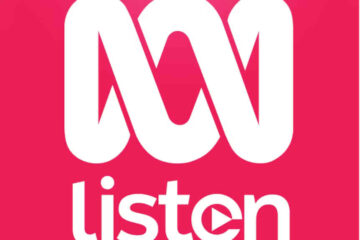Gershon Baskin claims that what the Obama visit did was to put the Palestinian issue back into the consciousness of everyone and if the [recent Israeli] elections removed the issue from public debate, the Obama visit brought it back.
Kerry picking up ball as Israel releases tax money to PA; relations with Turkey still tricky.
After the electricity of President Barack Obama’s visit to Israel last week and his speech urging Israel’s young generation to get involved in the peace process with the Palestinians, there were reports this week that a new round of talks may be on the horizon.
Obama left the Middle East from Jordan with Israelis elated from a three-day charm offensive in which the president repeatedly praised Zionism and Israel’s achievements, and gave assurances that America would stand behind the Jewish state — even though he warned that Israel must take risks for peace and that the status quo threatened its very existence.
“What the Obama visit did was to put the Palestinian issue back into the consciousness of everyone here,” said Gershon Baskin, a peace activist and political analyst. “If the [recent Israeli] elections removed the issue from public debate, the Obama visit brought it back — it’s now on the agenda.”
There were two immediate tangible achievements of the president’s visit. One was the surprise apology he arranged for Israeli Prime Minister Benjamin Netanyahu to make by phone to Turkish Prime Minister Recep Tayyip Erdogan for the deadly raid on a Gaza-bound Turkish aid ship in 2010. Nine Turkish citizens were killed when the Israeli navy stormed the ship, which was attempting to run the Israeli blockade of the Gaza Strip. Netanyahu’s phone call was the first step in the restoration of diplomatic ties.
The second achievement came Monday with the announcement that Israel would release tariffs and tax money it collects for the Palestinian Authority and which it has largely held onto since December in response to PA President Mahmoud Abbas’ success in seeking an upgrading of the PA’s status at the United Nations.
The release of the money and the decision to again routinely turn it over to the PA is reportedly a confidence-building move requested by Secretary of State John Kerry when he met Netanyahu for four hours of talks Saturday night. Kerry had met with Abbas earlier in the day in Amman. The Times of Israel cited other reports that Netanyahu is also considering freeing some Palestinian prisoners and transferring control of small parts of the West Bank to the PA.
Kerry said later of Obama’s trip: “Expressing optimism when you don’t even have negotiations would be foolhardy. … I know that the folks in Israel felt its impact. They were impressed by him, impressed by the vision that he expressed, and I think that his words even after he has left are reverberating. People are debating and talking, and that is precisely what the president sought to do.”
The official Chinese news agency Xinhua reported that the Palestinian leadership had agreed to Obama’s request to hold eight weeks of “exploratory talks” ahead of a resumption of direct peace talks with Israel. If they were held, it would be the first since 2010. The agency quoted Yasser Abed Rabbo, a member of the PLO’s executive committee, as saying that Kerry would preside.
The article also said Kerry would speak separately to Israeli and Palestinian negotiators in a confidence-building effort, and would discuss the Palestinian demand for a halt to the building of new Jewish settlements in the territories, along with pursuing a peace agreement based on two states for two peoples, and with borders based on Israel’s 1967 border.
“Based on the results of these talks, we will assess the level of Israeli commitment to the requirements of the peace process and the resumption of direct negotiations,” Abed Rabbo was quoted as saying.
Meanwhile, Sky Arabia and the London-based Al-Sharq al-Awsat reported Saturday that Kerry was arranging a meeting between officials from the United States, Israel the Palestinian Authority and Jordan to be held in Amman. The meeting was proposed during Obama’s meeting Friday with Jordan’s King Abdullah. Although that report was not officially confirmed, the Israeli website Ynet said it learned from a Jordanian official that the high-level meeting was being planned for April or May.
The breakthrough on restoring Israeli ties with Turkey has set a positive mood in the region. Yet officials and analysts say progress is fragile for the time being and depends on the implementation of an Israeli commitment to compensate families of the nine Turkish citizens killed and the mutual exchange of ambassadors.
In addition, there is general agreement that the cozy Israel-Turkey alliance from the 1990s is unlikely to be revived.
“It’s going to be a slow return, step by step,” said an Israeli diplomat. “I don’t see the Turks wanting to rush things, and neither are we. If you think we can go back to the way we were five years ago — it can’t. Too much damage has been inflicted; you don’t just jump back.”
Israeli newspapers quoted travel agents predicting Israeli tourist were likely to flood back into Turkey, but Israel’s defense establishment is taking a go-slow approach. As a goodwill gesture in February, it sent the Turkish Air Force advanced electronic warfare systems. It was the first such transaction since the flotilla raid several years ago. But Israel remains wary of supplying Turkey with advanced weapons for fear of it ending up in enemy hands.
“There is not going to be any great love now between Turkey and Israel,” wrote Alex Fishman, a defense analyst for Yediot Ahronot. “Relations will be cool, since Erdogan is not about to change his spots. But the [strategic] interests will be doing the talking. If a strategic dialogue begins between Turkey and Israel, and positions between the two countries are coordinated even beneath the radar that will be good enough.”
Alon Liel, a former envoy to Turkey who is familiar with the two-year Israeli effort to reconcile, said Kerry had been working on the agreement in the weeks leading up to the visit and had to press Erdogan to walk back his offensive statement likening Zionism to a crime against humanity. The Obama administration also pressed Netanyahu to make compromises.
Analysts noted that Israel’s renewed diplomatic relations with Turkey would diminish its feeling of isolation in the region and give it more confidence to pursue peace with the Palestinians.
In contrast to Israel’s generally positive embrace of Obama, Palestinians were disappointed that the president didn’t come with a new peace proposal. They also were unhappy with his visible warmth towards Israel and his decision to drop a settlement freeze as a prerequisite to peace talks.
“After decades of conflict and peacemaking attempts, it is insulting the intellect of the peoples in the region to hear that a U.S. president actually only wants to hear more from the parties,” Daoud Kuttab, a Palestinian reporter and political analyst wrote on the Maan news website.
Peace activist Baskin pointed out that Kerry’s future efforts to prod the two sides towards peace would have to be made away from the public eye in light of Israel’s pro-settler government.
“A lot of things can be done under the radar,” he said. “The prime minister can seek a peace deal, but … as soon as there is any real progress — such as a territorial concession — the government falls apart. But then they can seek approval in the Knesset or public referendum. And there’s a majority for that in the Knesset. Even a Jewish majority.”
Read more at http://www.thejewishweek.com/news/israel-news/hints-movement-seen-wake-obama-trip#wvhcE4ryz0MG6Zak.99Originally Published at http://www.thejewishweek.com/news/israel-news/hints-movement-seen-wake-obama-trip


